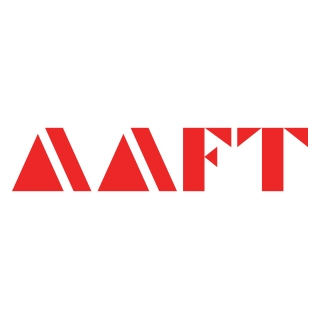The Latest Trends & Diversity in Hospitality Management
The subject of hospitality management is a rapidly evolving and varied sector in an environment that is always changing. The art of offering great service, generating lasting impressions, and assuring visitor pleasure in a variety of venues, from restaurants and hotels to resorts and event organizing, is at the core of hospitality administration.
Diversity, in all its manifestations, is crucial in determining how the field of hospitality management will develop. In this article, we’ll examine the value of diversity in this sector, looking at how it not only improves the visitor experience but also fosters a more open and forward-thinking workplace.
We’ll also look at current trends in hotel management that are influencing change and reshaping how companies in this industry conduct themselves. These trends, which range from customer choice changes to technical developments, are altering how business professionals view their jobs and obligations.
Join us as we explore the fascinating and dynamic field of hospitality management, where cutting-edge trends and diversity combine to provide a flourishing and welcoming sector.
A Diverse Workforce Provides Better Customer Service:
Do you want free career counseling?
Ignite Your Ambitions- Seize the Opportunity for a Free Career Counseling Session.
- 30+ Years in Education
- 250+ Faculties
- 30K+ Alumni Network
- 10th in World Ranking
- 1000+ Celebrity
- 120+ Countries Students Enrolled
Developing a diverse team can be a game-changer in a sector where customer happiness is crucial. When hotel staff members represent the diversity of their patrons, they can offer more individualized and culturally sensitive service. Respecting and comprehending each visitor’s distinct backgrounds and preferences goes beyond simply speaking the same language. A diversified crew is more likely to foresee and cater to a variety of guests’ needs, enhancing and enhancing their stay.

A Diverse Workforce Helps Hotels Understand and Meet Guest Needs:
Making visitors feel welcomed and cared for is the goal of hospitality. A varied workforce offers a range of viewpoints to the table, which may be extremely helpful in comprehending and accommodating the various needs of visitors. A hotel with staff members from varied cultural backgrounds, for instance, would be better able to provide particular culinary alternatives, religious accommodations, or cultural celebrations, improving each visitor’s experience.
A Diverse Workforce Drives Innovation:
The key to being competitive in the hospitality sector is innovation. A varied staff can provide novel perspectives and concepts, resulting in creative approaches to operations, marketing, and customer service. In an industry that transforms quickly to suit shifting customer tastes and expectations, diverse teams tend to develop a culture of openness and adaptation.
Book Now →
The Latest Trends in Hospitality Management
The Rise of Sustainable Tourism:
One of the latest trends in hospitality is- Sustainable travel. Hotels are responding to guests’ growing awareness of their environmental impact by implementing eco-friendly procedures. Sustainable efforts, such as lowering energy use, limiting trash, and assisting local communities, not only appeal to eco-aware visitors but also help to improve a brand’s reputation.
The Growing Popularity of Experiential Travel:
Travelers today look for experiences rather than just lodging. In order to capitalize on this trend, the hospitality industry is providing distinctive and engaging experiences. Hotels are creating experiences that go beyond just giving guests a place to sleep, from gastronomic explorations to immersions in the local culture. This fashion inspires visitors to engage with their environment and make lifelong memories.
The Increasing Use of Technology in Hospitality:
Every facet of hospitality management, from reservations and check-in to in-room amenities and guest engagement, is being transformed by the use of technology in hospitality. Keyless access, smart room controls, and mobile check-ins have become standard features that increase ease and customization. Hotels are increasingly using data analytics to customize services to meet the preferences and demands of specific visitors.
Do you want free career counseling?
Ignite Your Ambitions- Seize the Opportunity for a Free Career Counseling Session.Emerging Trends in Hotel Management
Technology Integration for Enhanced Guest Experience:
Technology integration into hotel operations is now a need, not an option. Technology is improving the guest experience, from mobile apps that enable contactless check-ins and room service requests to chatbots driven by AI that offer immediate support. Customers today anticipate quick and easy interactions with hotel services when using digital platforms.
Sustainability Initiatives and Eco-friendly Practices:
Sustainability in hotel management has evolved from a fad to a core principle. Initiatives to reduce waste, use renewable energy sources, and obtain green certifications are all increasingly commonplace. Hotels that embrace sustainability can not only lessen their environmental effect but also attract ecologically concerned guests. Guests are more likely to choose eco-friendly accommodations.
Personalization and Customization for Guests:
Hotel guests want their time there to feel personalized. Hoteliers are using technology and data to offer individualized amenities and services. Personalization involves improving customer pleasure and loyalty by doing everything from tailoring room amenities to proposing nearby attractions based on visitors’ interests.
How to Meet the Challenges of Diversity in Hospitality Management
Create a Culture of Inclusion:
Developing a diverse workforce is just the beginning; equally important is developing an inclusive atmosphere. Encourage open communication among staff members, respect diverse viewpoints, and foster a feeling of community. Collaboration and creativity are fostered in an environment where all opinions are valued and heard.
Provide Training on Diversity and Inclusion:
Employees who participate in diversity and inclusion training programs will have a better understanding of the significance of these ideas as well as practical skills for navigating varied workplaces. Training on diversity involves conversations on unconscious prejudice, seminars on cultural competence, and training on sensitivity.
Celebrate Diversity:
Celebrating diversity by creating unique backgrounds, experiences, and contributions of each person of your team. Celebrate ethnic festivals, plan events with a diversity theme, and share employee success tales to show off the best qualities of your varied team. This not only raises morale but also highlights how important diversity is inside your company.
Success in the dynamic field of hotel management depends on embracing diversity and keeping up with current developments. Hotels can create excellent guest experiences while guaranteeing a thriving and forward-thinking sector by supporting inclusion, remaining innovative, and aligning with future trends.

Conclusion
As we come to a close with our investigation of diversity and the most recent developments in hospitality management, it is clear that these factors are not just incidental concerns but essential factors influencing the present and future of the sector.
The hotel industry has benefited from diversity by adopting a more open-minded, creative, and sympathetic mindset. In addition to offering better customer service, a diverse workforce also enables hotels to better comprehend and cater to the various demands of their visitors. It acts as a catalyst for innovation, bringing new viewpoints to creativity and problem-solving.
The basic nature of how hotels function is changing concurrently due to the most recent advances in hospitality management. Customer experiences and standards are changing as a result of technological advancements, the rise of experiential travel, and sustainable tourism management. Hotels may not only stay competitive by embracing these trends, but they can also help build a more prosperous and sustainable future.
Q. How is technology changing hotel management operations?
In a variety of ways, technology is profoundly changing hotel management operations. Technology has automated and sped up many procedures, from faster reservations and check-ins through mobile apps to the usage of artificial intelligence for guest services. Hotels are able to customize services to suit each guest’s preferences thanks to data analytics. Additionally, the Internet of Things (IoT) and smart device integration improve energy efficiency and room controls. Systems for mobile keyless entry provide convenience and security. Overall, technology is a cornerstone of contemporary hotel management because it not only improves operational effectiveness but also raises the visitor experience.
Q. What are some of the challenges of diversity in hospitality management?
There are many difficulties in managing diversity in the hotel industry. Language limitations or different communication styles can make it difficult for ethnic teams to effectively communicate. Unfair representation can result from bias in recruiting and promotion decisions, which limits chances for underrepresented groups. Cultural miscommunications among employees or with customers might affect the level of service and satisfaction. It takes cultural sensitivity and conflict resolution abilities to manage a diverse staff. It is a constant struggle to create an environment where everyone feels valued and respected. A dedication to diversity, equity, and inclusion is required to overcome these obstacles, in addition to proactive steps like policy formulation and training.
Q. How can hotels create a culture of inclusion?
Hotels may promote an inclusive atmosphere by using a number of crucial tactics. Firstly, they must create and distribute diversity and inclusion policies that make it abundantly clear that all workers are valued and respected. It is crucial to encourage diversity in employment, leadership roles, and decision-making positions. Providing diversity workshops and training helps increase staff tolerance and understanding. It is essential to promote open lines of communication where staff members can openly share their worries and thoughts. An inclusive environment is further reinforced by activities or programs that recognize and celebrate cultural differences. Last but not least, actively combating prejudice and discrimination while holding people responsible for their actions contribute to the development of an office environment where diversity is genuinely valued.
Q. What are some of the resources available to help hotels with diversity and inclusion?
Hotels have access to a variety of tools for inclusion and diversity, including best practices and advice from organizations like the American Hotel & Lodging Association (AH&LA), an industry association. Specialized instruction and tactics are offered by consultants in diversity and inclusion. Research, papers, and case studies are available online at sites like DiversityInc and the Cornell Center for Hospitality Research to encourage inclusive business practices.
Q. How can hotels and tourism businesses create a culture of inclusion?
Hotels and tourism organizations should enact diversity policies, support diversity in hiring and leadership positions, provide diversity training, and promote open communication among staff members in order to create a culture of inclusion. In order to encourage a sense of belonging among a varied workforce, they need also be aware of and celebrate cultural diversity.

AAFT has been providing the world with limitless creativity and expression since 1993! Through a dynamic and industry-driven curriculum, AAFT provides engaging and captivating articles to persuasive blogs and empowers its readers to explore diverse avenues of creative media education-related content.








